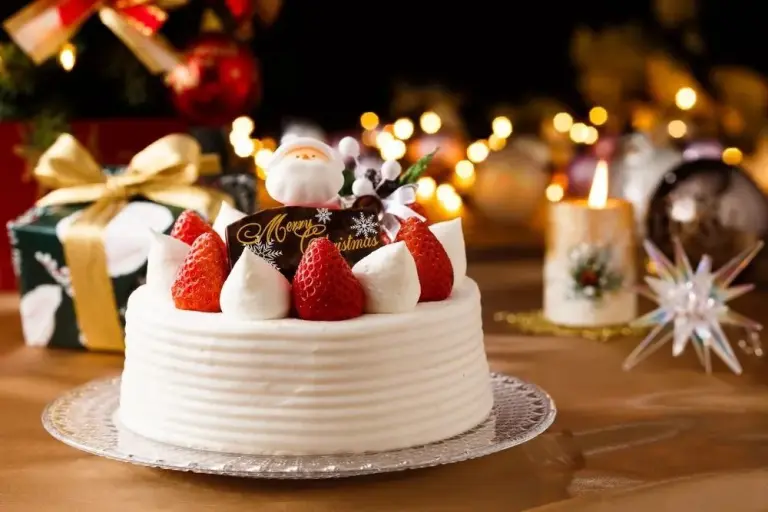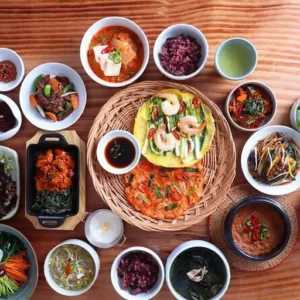Nestled between China and India, behind the towering Himalayas, Bhutan is a small autonomous kingdom renowned for its breathtaking landscapes—majestic mountain ranges, dramatic cliffs, and mysterious rock outcrops that stir human curiosity.
Yet, Bhutan’s charm extends far beyond its pristine natural beauty. Visitors to this “Happiest Country” are often captivated by its rich, colorful culture.
Its isolation from the outside world has allowed Bhutan to preserve its peace and authenticity. With 75% of the population practicing Buddhism, the religion is deeply rooted in daily life and traditions.
The most vivid expression of Bhutanese culture is found in its annual festivals, which commemorate significant historical and religious events. Here are some of the most celebrated festivals you shouldn’t miss when visiting the Land of Happiness.
Punakha Drubchen Festival
Often regarded as one of Bhutan’s most unique and fascinating festivals, Punakha Drubchen commemorates the victory of Bhutanese hero Zhabdrung Ngawang Namgyal over Tibetan forces in the 17th century.
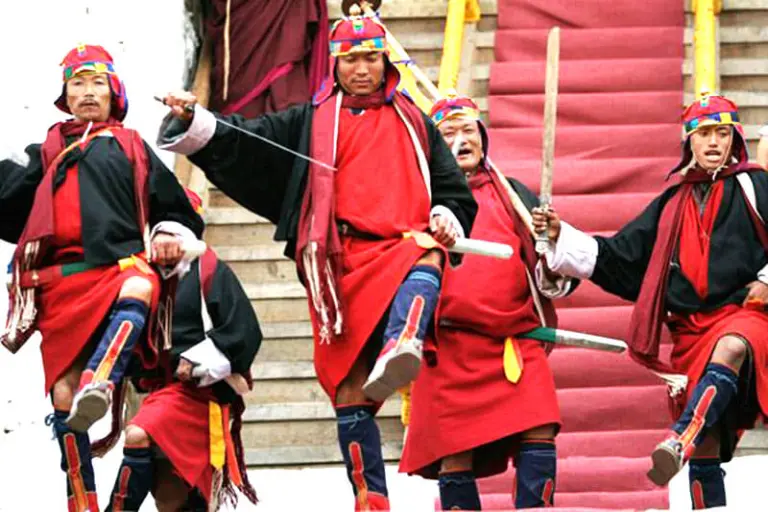
What makes this historical tale extraordinary is that the victorious army wasn’t made up of trained soldiers, but rather ordinary villagers from eight settlements in Thimphu who united under Zhabdrung’s leadership.
>> 6 most famous traditional musical instruments of Bhutan
If you visit between January and March, you can witness a vivid reenactment of this historic battle. Locals don armor and carry weapons, performing elaborate war dances that honor the courage and unity of their ancestors.
Experiencing Bhutan’s history through such a colorful and lively tradition leaves visitors with unforgettable memories.
Thimphu Tshechu Festival
As Bhutan’s largest annual festival, Thimphu Tshechu is both a profound religious event and a joyful social gathering. Rooted in Buddhist tradition, it gives locals the opportunity to cleanse past misdeeds and reflect on life’s spiritual origins.
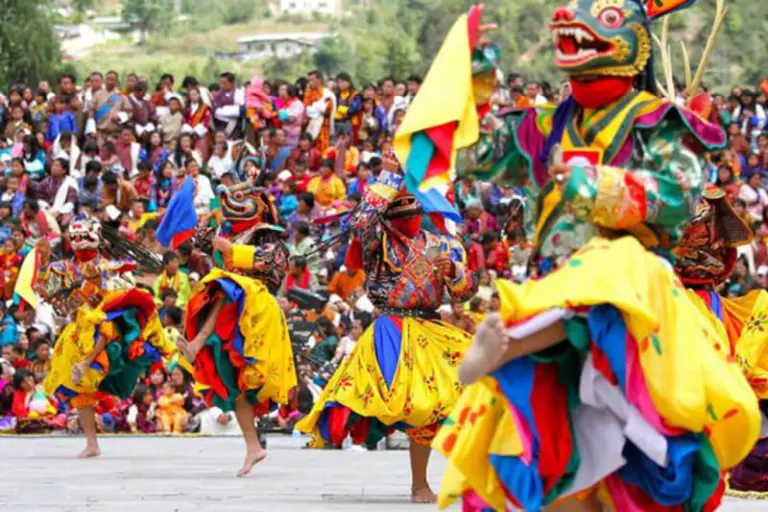
Held at Tashichho Dzong Monastery, a grand Buddhist monastery on the western bank of the Wang Chu River, the festival unites people through shared culture, tradition, and faith.
During the celebrations, the streets of Thimphu burst into color as residents don intricately designed traditional attire. One of the festival’s highlights is the Cham Dance—performed by masked dancers to the rhythmic chants of monks.
This sacred dance reenacts the moment before the death of King Shindhu Raija, when Guru Padmasambhava (the Lotus-Born Buddha) restored the king’s health through eight symbolic dances. Today, the Cham Dance serves not only as a form of meditation but also as an expression of reverence to the deities, believed to bring peace and blessings to spectators.
The festival takes place annually on the 10th day of the eighth lunar month and lasts for three days.
>> Unique cultural traits of the land of the Thunder Dragon, Bhutan
Paro Tshechu Festival
For those seeking a festival that combines spiritual dances with Bhutan’s monumental art, Paro Tshechu is a must.
Its most anticipated moment comes on the final day, when a gigantic Thangka (sacred religious painting) is unveiled at dawn.
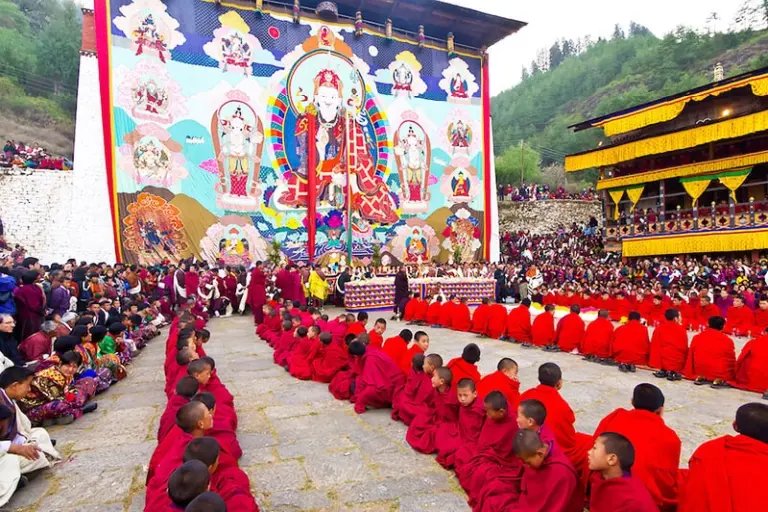
These Thangkas, often large enough to cover the façade of a monastery, depict Buddhist wheel of life diagrams, deities, mandalas, or meditating Buddhas. They are considered sacred and believed to grant blessings to those who gaze upon them.
On the festival’s last morning, locals gather before sunrise to touch the Thangka, believing it will bring divine protection and blessings from the Buddha.
>> What to know before visiting Bhutan – Dos & Don’ts
Haa Summer Festival
Held during the summer tourist season, the Haa Summer Festival offers visitors one of the best opportunities to immerse themselves in Bhutanese life.
The celebration showcases the cultural heritage of the Haa Valley, blending religious traditions with sports, folk dances, yak riding, and the tasting of local delicacies.
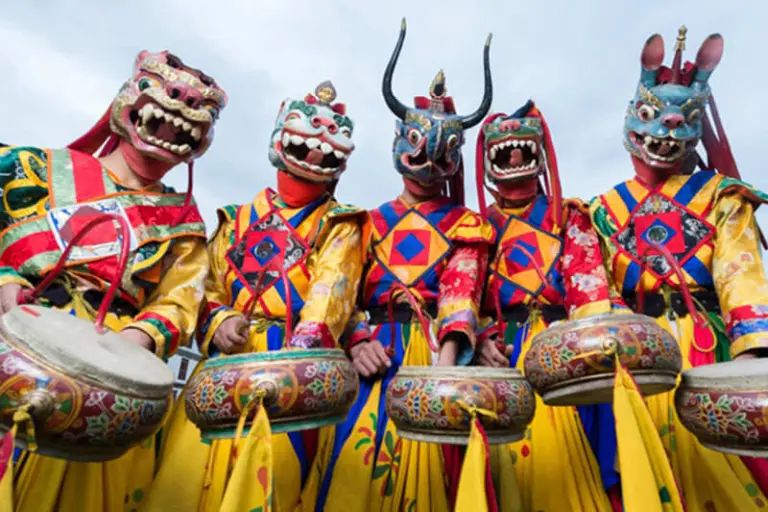
For travelers visiting Bhutan in the warmer months, joining the Haa Summer Festival is a chance to live like a local—full of joy, color, and community spirit.
With its distinctive culture, warm-hearted people, and awe-inspiring landscapes, Bhutan’s festivals are more than events—they are experiences that draw travelers back to this Land of Happiness time and again.
>> The people of Bhutan – 7 fascinating facts about the happiest residents on earth


